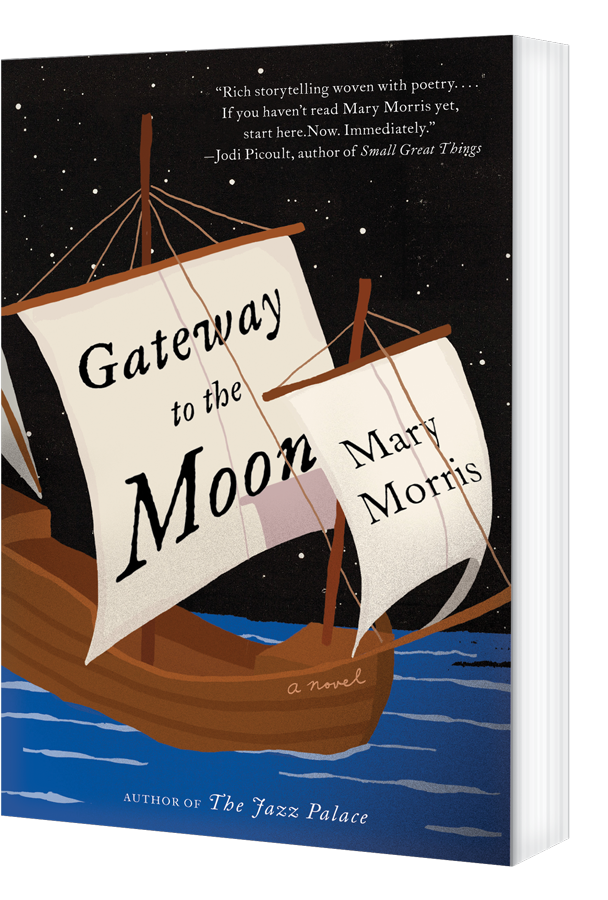From award-winning novelist Mary Morris comes the remarkable story of a remote New Mexican town coming to grips with a dark history it never imagined.
In 1492, the Jewish and Muslim populations of Spain were expelled, and Columbus set sail for America. Luis de Torres, a Spanish Jew, accompanies Columbus as his interpreter. His journey is only the beginning of a long migration, across many generations. Over the centuries, de Torres’ descendants travel from Spain and Portugal to Mexico, finally settling in the hills of New Mexico. Five hundred years later, it is in these same hills that Miguel Torres, a young amateur astronomer, finds himself trying to understand the mystery that surrounds him and the town he grew up in.
Entrada de la Luna is a place that holds a profound secret–one that its residents cannot even imagine. It is also a place that ambitious children, such as Miguel, try to leave. Poor health, broken marriages, and poverty are the norm. Luck is unusual. When Miguel sees a flyer for a babysitting job, he jumps at the opportunity, and begins work for a Jewish family new to the area. Rachel Rothstein is not the sort of parent Miguel expected. A frustrated artist, Rachel moved her family from New York in search of a fresh start, but so far New Mexico has not solved any of the problems she brought with her. Miguel loves the work, yet he is surprised to find many of the Rothstein family’s customs similar to ones he’s grown up with and never understood.
Interwoven throughout the present-day narrative are the powerful stories of the ancestors of Entrada’s residents, highlighting the torture, pursuit, and resistance of the Jewish people. A beautiful novel of shared history, Gateway to the Moon is a moving and memorable portrait of a family and its journey through the centuries.
Praise
“I have been spoiled by Mary Morris’s writing–her rich storytelling woven with poetry–for years, but this latest novel brings me to a whole new level of awe. Gateway to the Moon catalogs a slice of Jewish history which is both startling and deeply moving. This is a story about exploration–between the past and the present, between faith and truth, between the heavens and the earth. If you haven’t read Mary Morris yet, start here. Now. Immediately.”
—Jodi Picoult, New York Times bestselling author of Small Great Things
“Written in prose like music, with stories connecting like fugues, Morris follows her characters through time, through space, and through horrors and towards love. From Columbus to the Spanish Inquisition to modern day New Mexico and the Voyager space craft., this is a work so luminous, so important, that you could see it as a map of the way to live in our universe. We are all voyagers, Morris tells us, all reaching towards the stars because of ambition, or fear and of course, love. A writer is not supposed to be at a loss for words, but I am in awe here because nothing can describe the extraordinary experience of this novel. A dazzling masterpiece destined to be a classic.”
—Caroline Leavitt, New York Times bestselling author of Is This Tomorrow
“Mary Morris, who is in the long process of beautifully charting the world for us, the world of today and that of the past, has here braided a vivid and surprising narrative, bringing together little-known history with little-known landscapes to produce a fascinating story of immigration, faith and family. Brava.”
—Roxana Robinson, author of Sparta
“It’s a great joy when a novel so rich in history is also a total page-turner. Gateway to the Moon connects and illuminates, as we see the centuries-long trail of those who survived the Spanish Inquisition through disguise and adaptation. A wonderful book, remarkable in its knowledge and a terrific story.”
—Joan Silber, author of Improvement and Fools
“Gateway to the Moon shepherds the reader through a cosmos of human connection, where the unknown becomes knowable in ways that simultaneously cause pain and offer comfort. Mary Morris serves up ample portions of both in this wise and thought-provoking novel, which moves seamlessly from the 15th century to the 20th century and back again. By doing so, she reminds us that knowledge is a question, and that consequences are not the same as answers.”
—Carol Zoref, author of Barren Island, Longlisted for National Book Award in Fiction, Winner of AWP Award for the Novel





